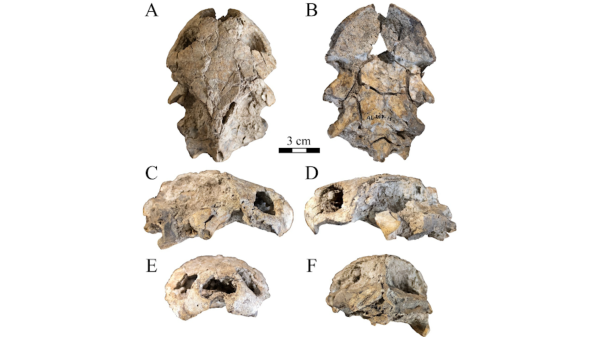Hacking club sparks cybersecurity success for ASU grad

Thomas Spencer graduates from the Ira A. Fulton Schools of Engineering this fall with a bachelor's degree in computer science. Courtesy photo
Editor’s note: This story is part of a series of profiles of notable fall 2023 graduates.
Thomas Spencer originally decided to attend Arizona State University to study with his friends. He says it also turned out to be a “happy coincidence” that he was able to take advantage of the excellent cybersecurity program in the Ira A. Fulton Schools of Engineering at ASU.
While originally an aerospace engineering major, Spencer has always been interested in computer programming. However, he was hesitant at first to switch his major to computer science.
“After joining the ASU Hacking Club, I had the courage to make the change,” says Spencer, who also earned a certificate in informatics and several scholarships, including the New American University President’s Award.
Spencer found himself engrossed in his computer science classes from the start, often spending his free time learning more and practicing programming concepts.
One of the things he finds most interesting about the field is how complex computer systems have become and the new career paths that have opened to study and reverse-engineer them.
Spencer’s choice to focus on cybersecurity was solidified when he finished an ASU hacking club challenge after months of effort.
“I still remember when the president of the club said, ‘You’re a hacker now,’ and I knew from there I could continue down this path and follow my passion,” says Spencer, who went on to win hacking competition awards and became a member of the prestigious Shellphish hacking team.
Yan Shoshitaishvili and Adam Doupé, associate professors of computer science and engineering, were instrumental in cultivating Spencer’s interest in cybersecurity. He was particularly inspired by Shoshitaishvili’s contributions to pwn.college, a free learning resource for the cybersecurity community.
“His passion for the field combined with his deep knowledge would make even the most disinterested student enthusiastic to learn more about cybersecurity,” says Spencer, noting he also admires Shoshitaishvili’s willingness to help students outside of the classroom and set up industry field trips.
As an officer in the ASU Hacking Club, Spencer encouraged others’ interests and skills in cybersecurity by hosting meetings, lectures and challenges, and making educational resources easily accessible. He found it rewarding to pay it forward and help anyone interested in cybersecurity start their journey in the field after the former club president inspired him.
After graduation, Spencer will be moving to Texas to begin his cybersecurity career. Someday, he also wants to conduct independent research. Spencer hopes his work with others in the field will make the cyber world a safer place — something he says is “increasingly significant” every day.
Favorites:
Hobby: Competing in capture-the-flag cybersecurity competitions.
Band: Breaking Benjamin.
Activity: Lifting with friends at the gym.
Game: Baldur’s Gate 3 or Divinity: Original Sin 2.
Podcast: "Darknet Diaries."
More Science and technology

New research by ASU paleoanthropologists: 2 ancient human ancestors were neighbors
In 2009, scientists found eight bones from the foot of an ancient human ancestor within layers of million-year-old sediment in…

When facts aren’t enough
In the age of viral headlines and endless scrolling, misinformation travels faster than the truth. Even careful readers can be…

Scientists discover new turtle that lived alongside 'Lucy' species
Shell pieces and a rare skull of a 3-million-year-old freshwater turtle are providing scientists at Arizona State University with…